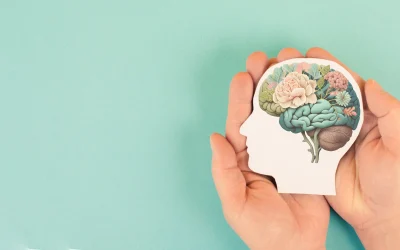CBT for Postpartum Depression
Understanding Postpartum Depression: When the Joy of New Motherhood Feels Overwhelming
Welcoming a new baby is often described as one of life’s most joyful experiences, but for many women, it can also bring unexpected emotional challenges. Postpartum depression affects about 1 in 7 women. This condition is more than just the typical stress of becoming a parent– it can be a serious mental health concern that requires attention and care.
What Is Postpartum Depression?
Postpartum depression is a mood disorder that can begin during pregnancy or after childbirth. Unlike the temporary “baby blues,” which affects up to 85% of new mothers and typically resolves within a week or two, postpartum depression lasts longer and can be physically and emotionally debilitating.
Common Symptoms
If you or someone you know is experiencing any of the following symptoms for more than two weeks, it may be time to seek support:
- Feeling constantly overwhelmed or hopeless
- Intense guilt or worthlessness
- Trouble sleeping, even when your baby sleeps
- Irritability or anger
- Emotional numbness or lack of interest in your baby
- Intrusive thoughts, including thoughts of self-harm
These symptoms can interfere with bonding, impact the baby’s development, and affect your whole family’s well-being.
Why Early Treatment Matters
Left untreated, postpartum depression can lead to long-term health issues for both mother and baby. It’s linked to complications such as premature birth, low birth weight, and difficulty bonding with your baby. That’s why recognizing the signs early and seeking treatment is so important.
How Therapy Can Help
Therapeutic approaches like Cognitive Behavioral Therapy (CBT) are highly effective in treating postpartum depression. CBT helps new mothers identify negative thought patterns and develop healthier ways of thinking. Another helpful strategy is behavioral activation, which encourages moms to schedule small, enjoyable activities and find ways to ease daily responsibilities– like asking for help with household tasks.
You’re Not Alone
If you’re struggling after having a baby, you’re not weak– and you’re definitely not alone. Postpartum depression is a common and treatable condition. Reaching out for help is one of the most important steps you can take for yourself and your baby.
If you or someone you care about is experiencing signs of postpartum depression, our clinic is here to help. Please call us at (949) 943-1877 to schedule a confidential appointment with one of our compassionate therapists.
REFERENCES:
https://www.psychiatry.org/patients-families/peripartum-depression/what-is-peripartum-depression
https://www.abct.org/fact-sheets/postpartum-depression-and-anxiety/



